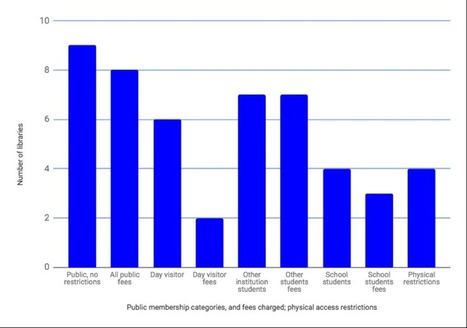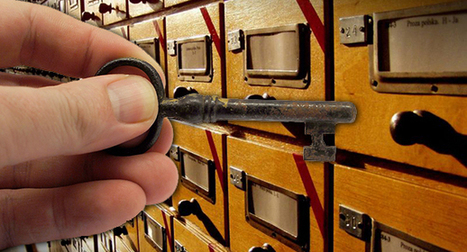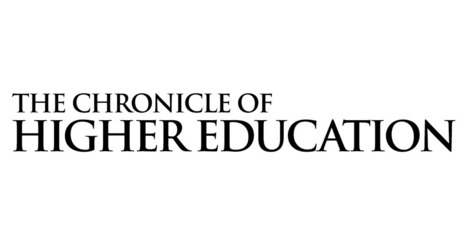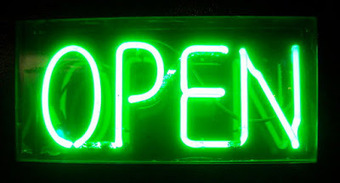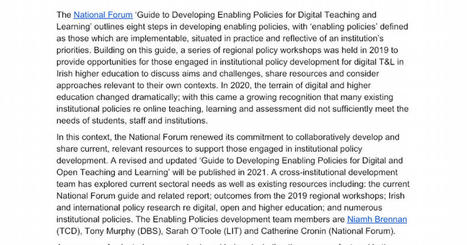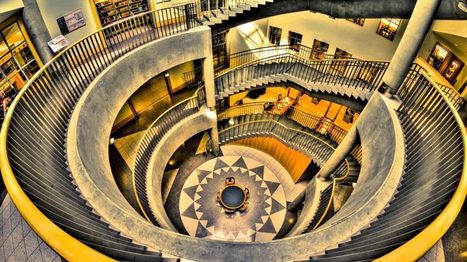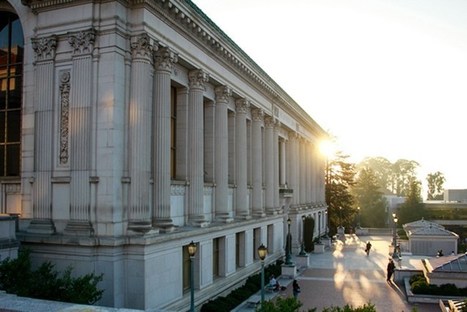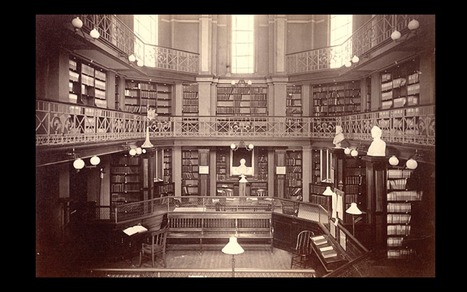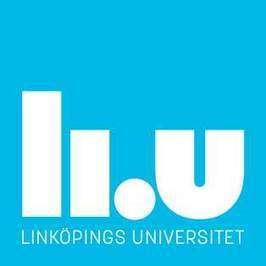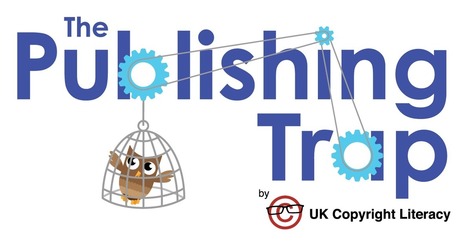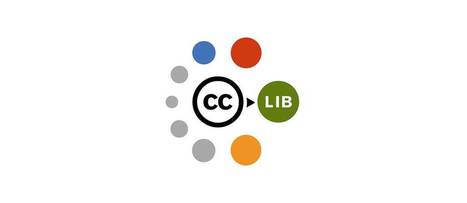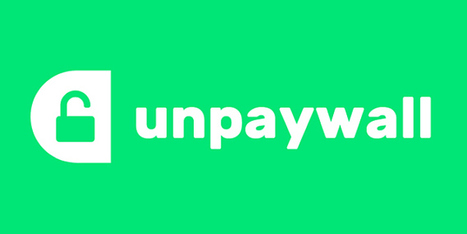 Your new post is loading...
 Your new post is loading...
I’ve been in a number of conversations recently where we’ve been talking about how we talk about Open Scholarship outside of our communities. If I talk to someone else who identifies as an open scholar, there’s no problem, I can just talk about my practice. But what if I’m in a tenure and promotion context? What if I’m trying to talk to someone who is considering open scholarship but they are concerned that the time spent will not be recognized.
There are so many useful skills you’ll develop while doing your research – from critical thinking and being able to evaluate your work and that of others, to time management skills. But the research world is rapidly changing, so what skills can you develop now to make you ready for the research future? In this post we guide you through some of the key skills for researchers today.
Conference on Learning Information Literacy across the Globe
https://informationliteracy.eu/conference/
10.5.2019 Frankfurt am Main
#LILG_2019 #biblioVerifica #crowdSearcher #iloOER
The slides describes the BiblioVerifica blog, which is an attempt by librarians to fight misinformation by using media and data literacy, engaging citizens as awareness users of the social networks, chats and blogs.
Biblioverifica aims to be a public engagement project based on information literacy practices, implementing tips and tricks about search tools, reliable sources, verification strategies. This non-profit initiative promotes fact-checking based on open resources as data, journals, tools, etc.
contact
https://economia.uniroma2.it/biblioteca/lilg_2019/
A while ago I asked if any writers wanted guidance on finding free – and most importantly, legal – access to academic research online. About 190+ respondents said yes. So belatedly, here’s some advice on finding research without paying for it. Writers need access to academic research for lots and lots of reasons. When I started working on Empire of Sand I wanted to use India’s Mughal Empire for inspiration, which meant I specifically needed to research the history, culture and politics of that era and region of the world.
Introduction. Open access to digital research output is increasing, but academic library policies can place restrictions on public access to libraries. This paper reports on a preliminary study to investigate the correlation between academic library access policies and institutional positions of openness to knowledge.
Method. This primarily qualitative study used document and data analysis to examine the content of library access or use policies of twelve academic institutions in eight countries. The outcomes were statistically correlated with institutional open access publication policies and practices.
Analysis. We used an automated search tool together with manual searching to retrieve Web-based library access policies, then categorised and counted the levels and conditions of public access. We compared scores for institutional library access feature with open access features and percentages of open access publications.
Results. Academic library policies may suggest open public access but multi-layered user categories, privileges and fees charged can inhibit such access, with disparities in openness emerging between library policies and institutional open access policies.
Conclusion. As open access publishing options and mandates expand, physical entry and access to print and electronic resources in academic libraries is contracting. This conflicts with global library and information commitments to open access to knowledge.
Everyone who has attended a college or university has had a moment where they discovered the cornucopia of digital resources available from their library. Or they could have had it if they were library-inclined. Not everyone is in love with libraries as much as yours truly, but there does come a time when Google isn't going to cut it for that final paper. It turns out there are many extremely helpful article databases one can only access when connected with an institution of higher education. The fancier your institution, the more access you typically get. (Harvard has everything, which will surprise no one.)
Last year I worked on finding a sustainable new home for the Open Access journal Research in Learning Technology. As part of my work for ALT, this was the third transition I have worked on since 2008 and during this period I have contributed to the thinking around Open Access publishing in Learning Technology, often through ALT’s contribution to initiatives such as the 2012/3 ‘Gold Open Access Project‘. This year I will be working with a new group set up by ALT to steer the future development of the journal:
Two open access articles and a podcast!
I don’t know how common it is for folks to have to explain Creative Commons licenses for others, but it often feels like a “continuously negotiated” thing (to use Catherine Cronin’s term). So I recently had a conversation that went something like this, with a professor who wants to create an open textbook (the actual discussion was slightly more complex and with more people involved):
In preparation for our #OER16 presentation, this is the first of two blog posts where Keith Smyth and will build on our abstract and give a bit more detail and context around our current thinking. There’s quite a bit to pack into a 15 minute conference presentation so we hope that these posts will allow…
A new breed of academics is emerging in the digital age. They are the researchers and teachers who freely share their knowledge and studies online. They are circumventing traditional approaches and discovering new ways of sharing their work. They are the open scholars.
Lu Xiao, a researcher in collaborative and social computing, carried out a study of academic perceptions of Wikipedia and open access publishing. Survey results showed that researchers’ lack of experiences with Wikipedia and/or open access journals negatively affected their perceptions of the open access publishing model. Compared to tenur...
|
Developing Enabling Policies for Digital and Open Teaching and Learning Resources shared at EdTech Winter Conference 2021 Prepared by: Catherine Cronin Short link to this document: http://bit.ly/Enabling-Policies-EdTechIE21 The National Forum ‘Guide to Developing Enabling Policies for Digital and Open Teaching and Learning.
You may be afraid someone will steal your idea. But sharing your work in public is a way to reflect, get feedback, and increase your creativity.
Via Ana Cristina Pratas
Libraries and funding agencies are finally flexing their muscles against journal paywalls. Authors should follow suit. A PERSON COULD BE FORGIVEN for believing 20 years ago that the internet would soon revolutionize academic publishing. With the emergence of the world wide web, it suddenly became possible for academic publishers to disseminate scholarly work at the click of a button — at a fraction of the cost of printing and mailing hard-copy journals. Recognizing the opportunity, many scholars and librarians began to advocate a new, open access model of academic publishing, in which research articles are made freely available online to anyone who wants them, not just affiliates of colleges or universities. The result would be a true online “public library of science” — which, as it so happens, also became the name of one of the first publishers to embrace the model. As a new librarian in the early 2000s, I believed passionately in the cause of open access and worked hard to bring it about. But almost two decades later, the movement has made only slight gains at the margins, and the traditional subscription-based model remains firmly entrenched in academia. For the university libraries who bear most of the subscription costs, it is as though the internet revolution never happened: Since 1986, research library expenditures have grown at more than four times the rate of inflation, with journal prices showing the greatest price jumps of all.
Six weeks after ending negotiations with academic publishing giant Elsevier, the University of California announced today that it’s entered into its first open access agreement with a major publisher — Cambridge University Press. The agreement maintains UC’s full access to all scholarly journal articles published by Cambridge University Press and also provides open access publishing in those journals to authors on all 10 UC campuses. “The publisher gets the same amount of money, we get the access our scholars need and everyone in the world gets to read the scientific discoveries our scholars produce. This is a win for everyone,” says UC Berkeley University Librarian and professor Jeffrey MacKie-Mason, who is co-chair of the UC team that negotiated with Elsevier.
Good afternoon! A note about accessibility before I begin. If you would like to follow along with the written version of this talk, you can visit http://bit.ly/palakeynote. That link will also have the images on the slide deck with embedded descriptions for your screen reader, and the embedded video has closed captions.
I was really honored to be asked to keynote this luncheon for the Pennsylvania Library Association’s College and Research division at the PaLA annual conference… particularly because I fancy myself a parallel-universe librarian, and I know that out there through a wormhole somewhere, it is 1979 and I am using one of those thunk-thunk machines to date-stamp library book cards.
The library will compensate researchers’ their OA fees when publishing in pure Open Access journals.
The Publishing Trap is a board game from the UK Copyright Literacy team that allows participants to explore the impact of scholarly communications choices and discuss the role of open access in research by following the lives of four researchers – from doctoral research to their academic legacies. It is a full functioning, prototype game first developed in 2016 when it won a runner’s up prize at the LILAC Lagadothon. However, the game has evolved considerably since then.
Why Needed?
Librarians have always been keepers and distributors of knowledge. In the 21st century their role is expanding in new ways. Library collections…
The CC Librarian Certificate aims to ensure all librarians have the 21st century knowledge and skills they need to successfully perform Creative Commons related library functions and help patrons extend access to knowledge.
Today marks the official launch of Unpaywall, a web browser extension that links users directly to free full-text versions of research articles. Heather Piwowar and Jason Priem of Impactstory, the team behind Unpaywall, report on the successful pre-release phase, and explain how two decades of investment, a slew of new tools, and a flurry of new government mandates have helped build a powerful momentum behind green open access.
Today we’re launching a new tool to help people read research literature, instead of getting stuck behind paywalls. It’s an extension for Chrome and Firefox that links you to free full-text as you browse research articles. Hit a paywall? No problem: click the green tab and read it free!
Shadowy digital libraries want to hold all the world's knowledge and give it away for free. All around the world, shadow libraries keep growing, filled with banned materials. But no actual papers trade hands: everything is digital, and the internet-accessible content is not banned for shocking content so much as that modern crime, copyright infringement.
So, let’s say I’m doing research on issues related to privilege and inequality. Google Scholar tells me there’s a an article on stratification in higher education that’s looks interesting. Here’ another one on how postcolonial theory can inform resistance to neoliberalism in universities. And ooh, this looks really interesting: digital inequality and participation in the political process. How great that academics turn their methods and theories to solving the problem of inequality. Too bad most people won't be able to read these articles.
Within the overall framework of the organization’s strategy on OA, the recent launch of OA curricula for Researchers and Library Schools by UNESCO highlights its efforts for enhancing capacities to deal with Open Access issues. The carefully designed and developed sets of OA curricula for researchers and library and information professionals are based on two needs assessment surveys, and several rounds of face-to-face and online consultations with relevant stakeholders.
|
 Your new post is loading...
Your new post is loading...
 Your new post is loading...
Your new post is loading...









